When George Frideric Handel (1685-1759) first arrived in London in 1711, it was to oversee the staging of his new Italian opera Rinaldo. At the time, he was employed as the Kapellmeister in Hanover but was permitted to take 8 months off for this London trip. His patron in Hanover, the Elector of Hanover, had ascended to the English throne as King George I in 1714, following the death of Queen Anne, the last of the Stuarts.
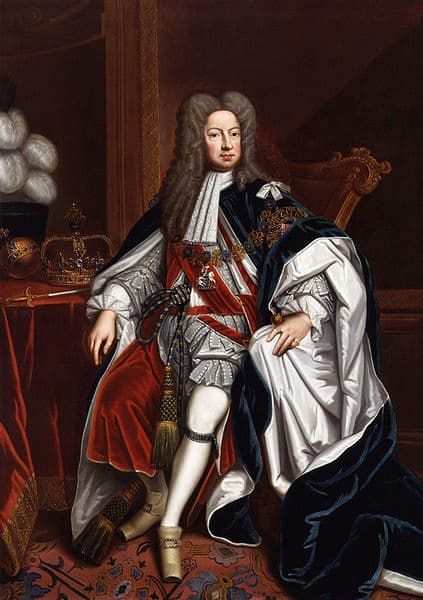
Godfrey Kneller: King George I, 1714 (National Portrait Gallery)
Handel returned to Hanover for 15 months and then was back in London permanently.
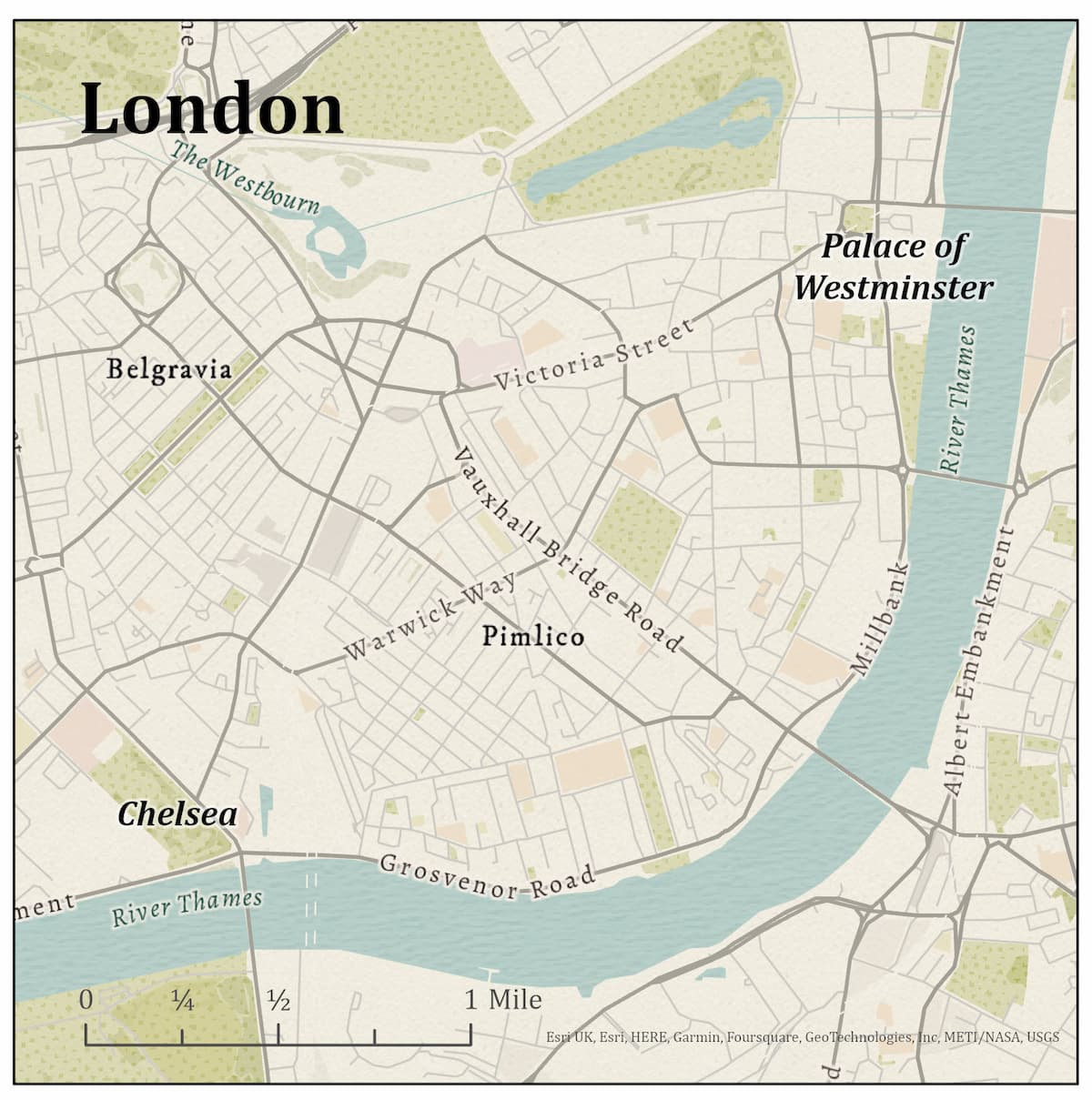
The Route Up the Thames (map by K. Buja)
In London, Handel was involved in more than Italian opera. He also wrote English oratorios, which provided employment for opera singers during Lent; music for the church and music for the pleasure gardens, and most interestingly, two significant pieces of music for outdoor entertainment: The Water Music (1717) and the Music for the Royal Fireworks (1749).
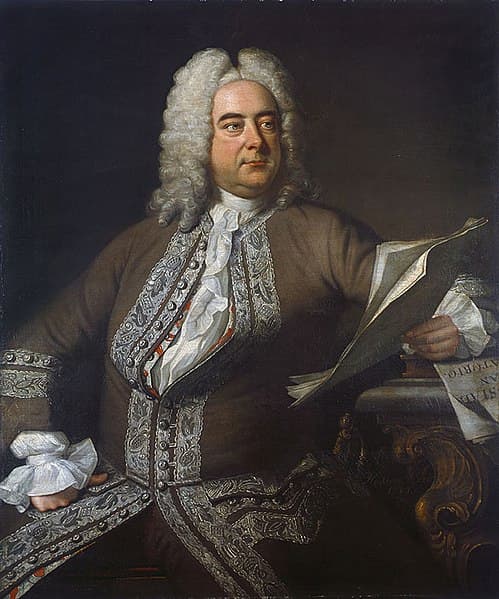
Thomas Hudson: George Friedrich Handel, 1741 (Hamburg State and University Library Carl von Ossietzky)
The Water Music was written to entertain a royal party sailing up the Thames from Whitehall to Chelsea. Rumour has it that Handel was in the Elector’s bad graces because of his extended absences and this work enabled their reconciliation. The music was used not only on the barges as they travelled up and down but also to entertain the court during dinner. There were three suites: one that emphasizes the horns, a second one that emphasizes the trumpets, and a third one, thought to have been the supper music, that has softer instruments. The band was provided by Baron Keilmansegge, who was married to the King’s half-sister, and consisted of 50 musicians. Since this was to be played on the water and the sound needed to be loud, there’s no harpsichord part for this music.
The Daily Courant reported:
On Wednesday Evening [17 July 1717] at about 8, the King took Water at Whitehall in an open Barge… And went up the River towards Chelsea. Many other… Persons of Quality attended, and so great a Number of Boats, that the whole River in a manner was cover’d; a City Company’s Barge was employ’d for the Musick, wherein were 50 Instruments of all sorts, who play’d all the way from Lambeth… the finest Symphonies, compos’d express for this Occasion, by Mr Handel; which his Majesty liked so well, that he caus’d it to be plaid over three times in going and returning.
The three suites cover 22 movements including all kinds of dances: ‘fast and vivacious Bourées, graceful Minuets in ¾, and 2 Hornpipes that form lively country dances in triple meter.’ Music in the French style, the English style, and the Italian gave an indication of not only Handel’s skill but also reflected the king’s position.
The overture, now generally played faster than we hear in this recording, sets the stage for the music to accompany a day out on the water.
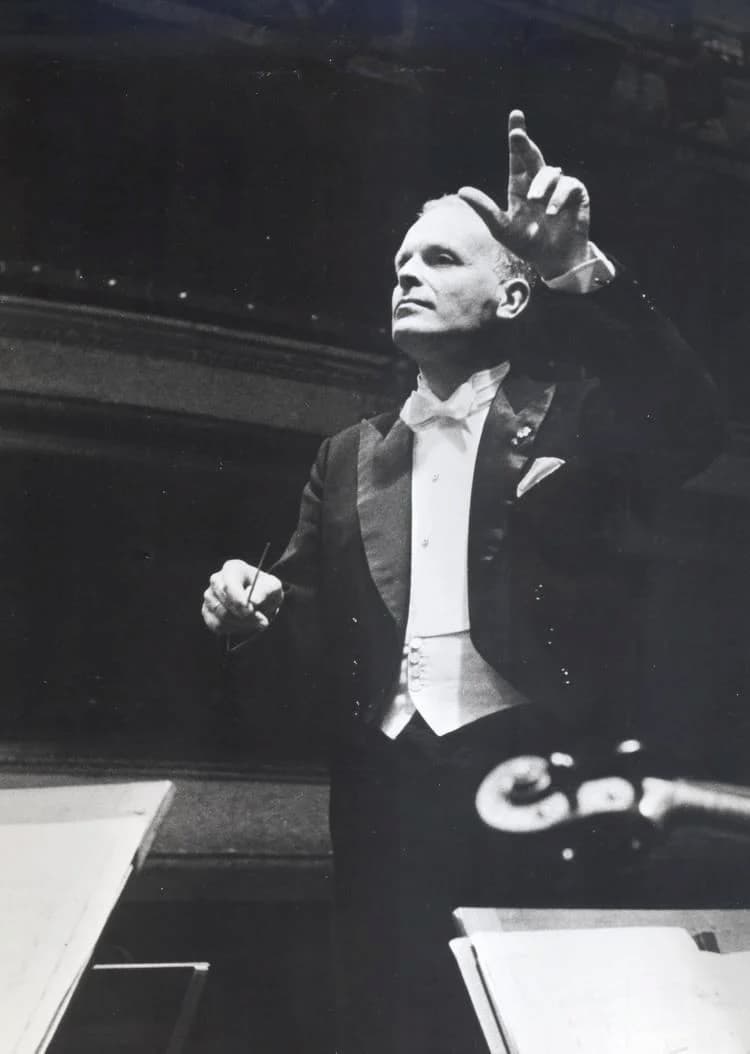
Willem Van Otterloo
George Frideric Handel: Water Music – Overture
This recording was made in 1957 with Willem Van Otterloo directing the Hague Philharmonic Orchestra. A cellist and composer in addition to being a conductor, Van Otterloo did his work at the Amsterdam Conservatoire. He was appointed chief conductor of the Residentie Orkest (aka The Hague Philharmonic Orchestra) in 1949 and held that position until 1973. He ended his career in Australia, first as chief conductor of the Melbourne Symphony Orchestra (1967-70) and then of the Sydney Symphony Orchestra (1971-1978).
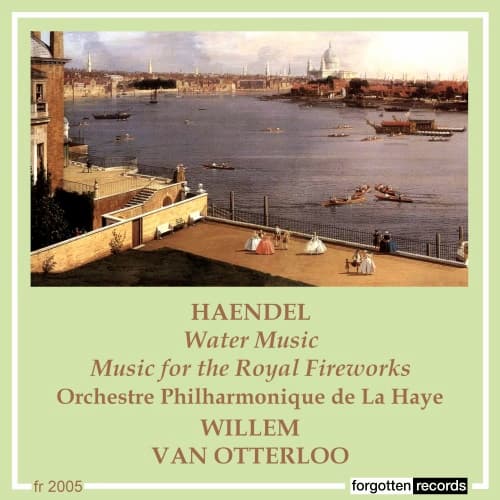
Performed by
Willem van Otterloo
Orchestre Philharmonique de la Haye
Recorded in 1957
Official Website
For more of the best in classical music, sign up to our E-Newsletter
